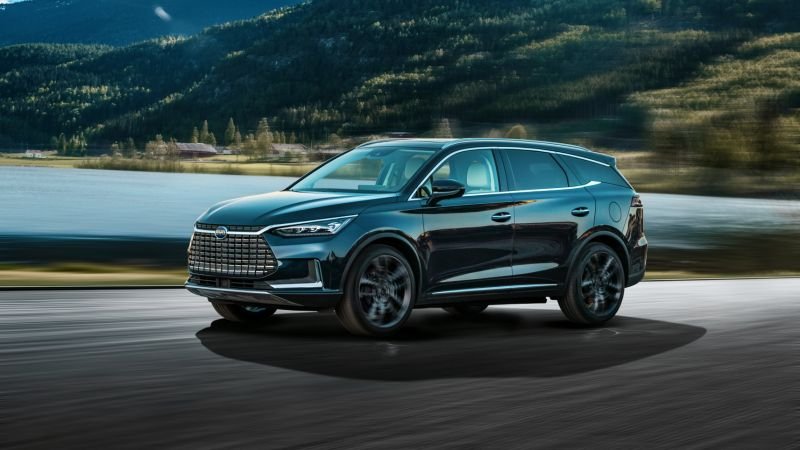As Europe grapples with the rise of Chinese electric vehicles (EVs), a major decision looms that could reshape the balance of power in the global auto market. In early July, the European Union imposed temporary duties on Chinese-made EVs, citing concerns about unfair competition. However, following intense debate among member nations, the initial tariffs were reduced to symbolic levels. The stakes are set to rise again, with a September 25 vote determining whether the EU will implement long-term tariffs, potentially disrupting the delicate economic relationship between Europe and China.
If the bloc votes in favor of permanent tariffs, these duties could go into effect by November and remain in place for five years, signaling a more protectionist stance toward the influx of Chinese EVs. But as discussions heat up, not all EU member states are on board with the move, exposing a growing rift in how to handle the rapidly changing auto landscape.
The Economic Tension: Europe’s Response to Chinese EVs
The European market for electric vehicles is booming, with governments pushing for greener technologies and consumers embracing more sustainable choices. However, China’s aggressive expansion into the EV market is perceived as a threat to local automakers. Chinese brands have quickly gained a foothold in Europe, offering competitively priced EVs with advanced technology, shaking up the competitive landscape.

Chinese automakers, including companies like BYD and SAIC, are gaining traction in Europe, leveraging lower production costs and technological advancements to offer attractive alternatives to established European brands. This is particularly worrisome for nations like Germany, home to automotive giants like Volkswagen and BMW, which are still adapting to the EV transition.
Germany and Spain: Opposing the Tariffs
Despite the widespread concern over Chinese competition, not all EU members are in favor of imposing higher tariffs. Germany, Europe’s largest car producer, stands at the forefront of the opposition. The country has deep economic ties with China, which is the world’s largest auto market and a critical revenue stream for German automakers. Brands like Volkswagen and BMW, which together sold around 4.6 million vehicles in China just two years ago, are wary of any retaliatory measures China might take if tariffs are imposed.
German carmakers are also heavily invested in joint ventures with Chinese companies, producing cars for both the Chinese and European markets. Higher tariffs could trigger a backlash that may harm Germany’s long-standing dominance in the global auto industry. As a result, Germany is playing a delicate game, balancing its interest in protecting local jobs with the need to maintain access to the lucrative Chinese market.
Similarly, Spain, the second-largest car producer in the EU, has voiced its opposition to the tariffs. Prime Minister Pedro Sanchez recently visited China to attract investment in Spain’s emerging electric vehicle sector. Spanish automakers are counting on these investments to propel their EV industry forward, and higher tariffs could deter future Chinese partnerships. For both countries, the potential consequences of a tariff war with China far outweigh the benefits of shielding local producers from competition.
A Battle of Interests: The Future of EU Tariffs
While Germany and Spain resist, other European nations argue that stronger tariffs are necessary to level the playing field. The European auto industry has long complained about subsidies and government support provided to Chinese automakers, which they claim distorts the market and gives Chinese brands an unfair advantage.
If approved, the new tariffs will range from 18% on Tesla vehicles manufactured in China to a staggering 46.3% on cars from SAIC, a Chinese automotive giant. These figures already include the basic 10% import tax applied to electric vehicles from all non-EU countries. The goal is to protect Europe’s automotive industry from being overwhelmed by cheaper Chinese imports.
The timing of this decision is crucial. With the EV revolution in full swing, any measures that slow down competition could have long-lasting consequences. But the reverse is also true: failing to address the influx of Chinese EVs could undermine Europe’s long-established auto sector, threatening jobs and weakening the continent’s global competitiveness.
Looking Ahead: What’s at Stake
The debate over tariffs on Chinese electric vehicles underscores a larger challenge facing Europe: how to embrace innovation without sacrificing local industries. As the world moves toward more sustainable technologies, the EU must find a way to balance the interests of its members while promoting fair competition.
The September 25 vote will be pivotal. If at least 15 EU countries, representing 65% of the bloc’s population, vote in favor, the new tariffs will take effect in November. This would give European automakers a buffer against their Chinese competitors but could also spark retaliation from China, impacting everything from electric vehicle exports to broader economic relations between the two regions.
While European automakers work to ramp up their own EV production, the race to secure market share is growing fiercer. China’s ability to produce high-quality, affordable electric vehicles is a challenge Europe cannot ignore. But finding the right balance—between protecting local industries and remaining open to global competition—will be key to Europe’s future in the electric vehicle revolution.
For now, the outcome remains uncertain. But one thing is clear: the decision on tariffs will play a crucial role in shaping the European auto industry’s future, as well as its relationship with the world’s largest car market, China.
Source: Bloomberg
